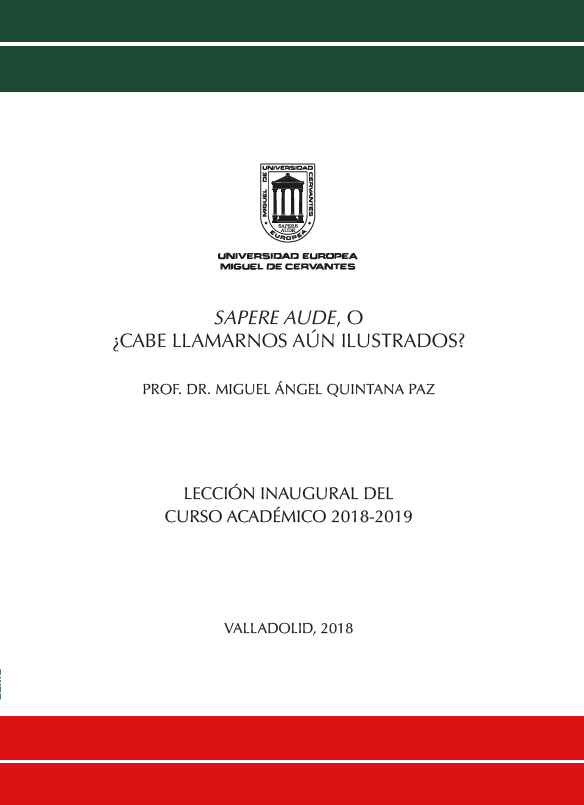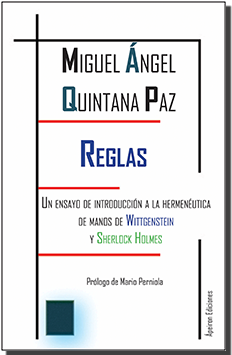Sapere aude, or: Is it Possible to Call Ourselves Enlightened Yet?
Inauguration Speech of the Courseyear 2018-2019 at the European University Miguel de Cervantes
Universidad Miguel de Cervantes, 2018
Rules
An Essay of Introduction to Hermeneutics with Wittgenstein and Sherlock Holmes
(with a prologue by Mario Perniola)
Ediciones Ápeiron, 2017
Why do we say that an exception “confirms” a rule? Wouldn’t it be better to say just the opposite, that exceptions refute that rule? From that point, this book raises “a whole actual question”, as the Italian philosopher Mario Perniola asserts in its prologue. It starts by affirming that, surprising as it seems, an exception does in fact confirm a rule. Philosophers as Cicero or Leibniz already knew so. But those exceptions should not be overwhelming. In fact, this essay suggests that our culture, for the last centuries, has experienced a big attack to the difference between rules and exceptions. Such an attack reached its highest point among the “masters of the school of suspicion” that started in the 19th century: Marx, Nietzsche and Freud. What should be done, then? Can we still believe in some rules? The author defends that we could learn useful insights for this from a variegated array of sources: Ludwig Wittgenstein, hermeneutical philosophy and a fiction detective created by G. K. Chesterton: father Brown, much more reasonable than Sherlock Holmes himself.
.
Interview by the Círculo Holmes (Spanish association of friends of Sherlock Holmes) about this book.
Normativity, interpretation and praxis
Wittgenstein in a Hermeneutic-Nihilistic Turn
Universidad Europea Miguel de Cervantes, 2014
Exclusive offer: the book in a limited edition CD by 12 € + shipping. Request it here.
How is it possible that human beings impose on each other, an in a quite effective way, norms and rules? Where do these rules take their power or authority from, in order to be effective? These questions constitute the problem of normativity in philosophy, and this book tries to give an answer to them with the help of some reflections by the philosopher Ludwig Wittgenstein (1889-1951), especially those coming from his later years (after 1929). Although the book is not a work on Wittgenstein in the narrow sense, it may be understood as an exercise that, starting by his arguments on normativity, comes to some conclusions that mainly belong to the ethical and political sphere. This ethical and political conclusions, plus, have a recognizable affinity with the nihilistic hermeneutics proposed by the Italian philosopher Gianni Vattimo (1936-).






